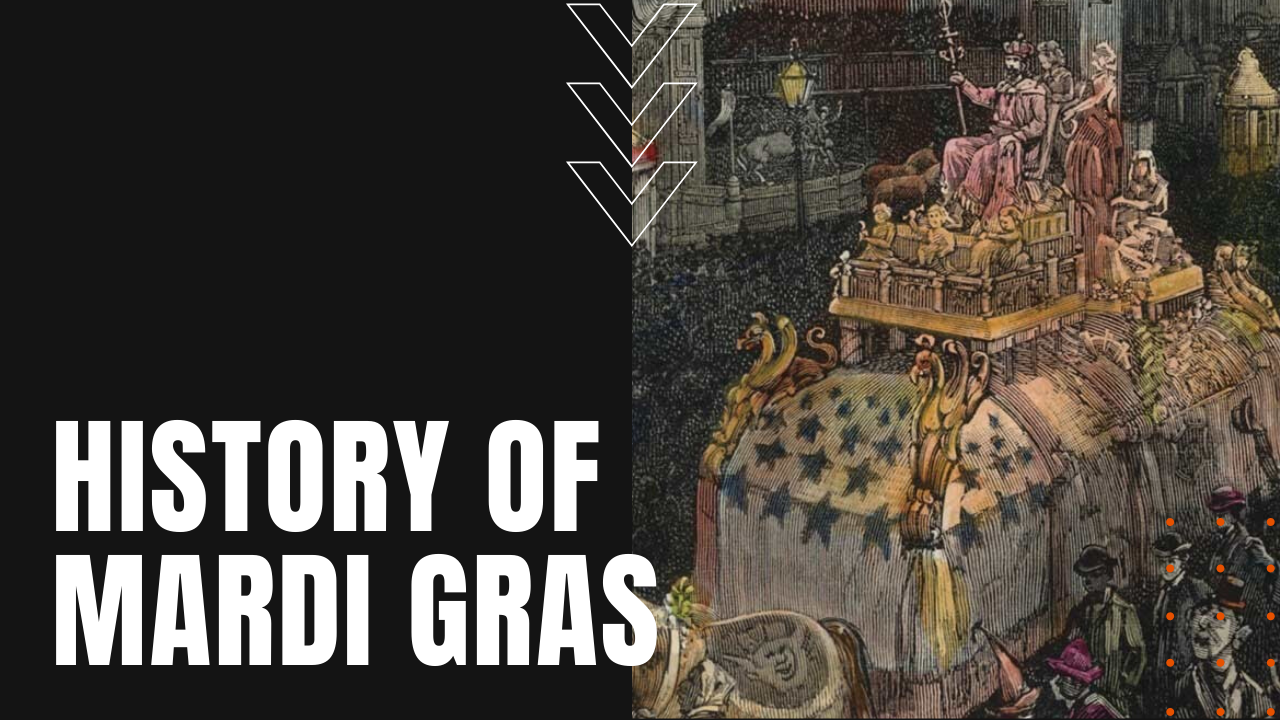History of Mardi Gras

What Does Mardi Gras Mean?
Mardi Gras is French for Fat Tuesday.
The Celebration of Mardi Gras—or Carnival in some parts of the world—begins on the Christian feasts of the Epiphany, building towards an ever-rising crescendo of parades, parties and wanton consumption, until its abrupt end on Shrove Tuesday, the day before Ash Wednesday, when all good Christians enter the Lenten season of fasting and penitence, followed by a sense of rebirth on Easter Sunday, which is the most important event on the annual Christian calendar.
In the United Kingdom, Mardi Gras is known simply as Shrove Tuesday, where the word “shrove” derives from “shrive,” meaning “to administer the sacrament of confession, which leads to the absolution of sin. Mardi Gras’ mirror twin Carnival means literally “Goodbye to meat” for the 40 days of Lent, which commemorates the 40 days that Jesus fasted in the desert after being tempted by the Devil.
The History of Mardi Gras
Many scholars believe that Mardi Gras has its roots in the ancient pagan ritual of Saturnalia, which celebrates the coming of spring and the subsequent fertility of plants, animals and humans. Dating back to 133 B.C., Saturnalia encompassed a week-long celebration to Saturn, the god of agriculture, when Romans threw public banquets replete with gift-giving, continuous partying and an overall disruption of Roman social norms—a time when gambling was made legal, while masters provided table service for their slaves, giving them Freedman-style liberties for a week of unabashed gluttony.
Later versions of Mardi Gras can be traced to medieval Europe, when pre-Lenten celebrations became the rage in Rome and Venice before migrating to the House of the Bourbon in France. From there, the traditional celebration of “Boeuf Gras” or “fatted calf” followed Frenchmen to their colonies in North America.
Mardi Gras vs Carnival
Whether known as Carnival or Mardi Gras, annual celebrations are held in a culturally diverse array of countries, including the southern United States, where the French term “Laissez les bons temps rouler” means “Let the good times roll.”
Other celebrant countries include the Czech Republic, Senegal, Trinidad and Tobago, Germany, Poland, Belgium, Italy, Brazil and more, making Mardi Gras one of the greatest celebrations of human excess in the history of man.
